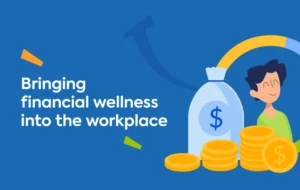
INTRODUCTION

UK WORK RISK COVER: Workers’ compensation insurance, also known as work risk cover insurance, is a type of coverage that offers financial security to both employers and employees in the event of job-related illnesses or accidents. This is a succinct explanation:
Reportage:
Medical expenses, rehabilitation costs, and missed pay for employees hurt on the job or ill from work are usually covered under work risk coverage. If an employee passes away due to an incident at work, their dependents may also be eligible for death payments.
Required in Numerous Locations:
Employers are legally obligated to carry workers’ compensation insurance in several jurisdictions. This guarantees that workers, regardless of responsibility, receive fair pay and medical attention for illnesses or injuries sustained at the workplace.
Benefits for workers:
When an illness or injury arises at work, employees benefit from this insurance by getting timely and adequate medical care. In addition, they are entitled to reimbursement for any lost income while they are recovering.
safeguarding employers:
Employers are shielded from potential lawsuits relating to workplace injuries by workers’ compensation insurance. Most of the time, an employee forfeits their ability to hold their employer legally accountable for carelessness when they accept workers’ compensation benefits.
Premiums:
Workers’ compensation premiums are usually paid by employers. A few examples of the variables that affect the price are the type of job, the size of the workforce, and the safety record of the organization. The amount of risk related to the industry may affect premium adjustments.
Procedure for Claims:
Employees are required to notify their employer right away if they are hurt or get sick. After that, the employer starts the claims procedure with the insurance company, making sure the wounded worker gets the treatment and money they need.
All things considered, work risk cover insurance is an essential part of the social safety net, offering monetary security and assistance to both employers and employees in the event of sickness or accidents at work.
Work Risk Cover in the UK

The counterpart of work risk cover insurance in the United Kingdom is known as “Employers’ Liability Insurance.” This is an explanation that is exclusive to the UK:
Legal prerequisite:
Nearly all employers in the UK are required by law to carry Employers’ Liability Insurance. With rare exceptions (e.g., family enterprises that don’t hire outside family members), it is required for firms that employ one or more individuals.
Reportage:
Employers are financially protected by this insurance if a worker is hurt on the job or contracts an illness. It pays for settlement costs, attorney fees, and other costs related to these kinds of claims arising from the workplace.
Minimum Protection:
Although many policies offer larger coverage limits, the law requires a minimum coverage level (£5 million as of my last knowledge update in January 2022). If an employee is hurt on the job or becomes ill as a result, this guarantees that companies can fulfill their financial obligations.
Procedure for Filing a Claim:
In the event of an employee’s illness or injury, they may file a claim with their employer’s liability insurance. Usually, the claims procedure includes promptly reporting the occurrence and supplying the required paperwork. Employers must put the insurance certificate in a visible location for staff members to view.
Exemptions:
This rule does not apply to some companies or independent contractors. But it’s crucial to understand the precise requirements for exemption and, if necessary, to have the right insurance in place.
Penalties for Failure to Comply:
Severe consequences, including fines, may arise from not having employers’ liability insurance. It is regarded as a legal requirement to safeguard workers and offer financial assistance in the event of illnesses or injuries sustained at work.
Businesses operating in the UK must comprehend and abide by the requirements of employers’ liability insurance. It guarantees that employers can pay their employees’ bills in the event of an incident at work, in addition to satisfying a legal requirement.
Importance of work risk cover in the UK

Workplace risk coverage, or more precisely, employers’ liability insurance in the UK, is important for the following reasons:
Legal prerequisite:
Nearly all UK employers are required by law to carry Employers’ Liability Insurance. If this provision is not followed, there could be heavy fines. If an employee gets hurt on the job or contracts a disease as a result, this guarantees them access to financial assistance.
Employee Financial Protection:
Employees who have work-risk cover are protected financially because it pays for missed wages, medical bills, and rehabilitation. For workers who sustain illnesses or injuries at work, this support is essential because it allows them to heal without having to worry about money.
Businesses:
Employers’ liability insurance is required for companies with one or more employees. This covers seasonal, temporary, full-time, and part-time employees. This required coverage guarantees that companies assume responsibility for the health and safety of their workers and foster a safer workplace.
Employers’ Mitigation of Risk:
Employers’ financial risks related to occupational sickness or injuries are reduced when they have work-risk coverage. Legal fees, other associated charges, and compensation claim costs are all covered by insurance. For companies of all sizes, this insurance is crucial because it avoids potentially disastrous financial outcomes.
Social obligation:
Providing a safe and secure workplace is an employer’s social obligation, which is in line with work risk cover. It shows a dedication to workers’ health and welfare and fosters a safe and supportive work environment.
Preventing Legal Repercussions:
Employers’ Liability Insurance shields companies from lawsuits stemming from on-the-job accidents. Employers may face legal action in the absence of this coverage, with potentially severe financial consequences. Putting insurance in place is a proactive step toward safely handling such circumstances.
Tranquility of mind:
Employers and employees can rest easy knowing that they have Employers’ Liability Insurance. A more stable and secure working environment is produced by the knowledge that there is financial protection in place in the event of incidents relating to the job.
In conclusion, companies’ liability insurance, or work risk protection, is essential in the UK to meet legal obligations, safeguard workers, reduce financial risk to companies, and promote a responsible and safe work environment. It is essential to preserve an equitable and safe working environment for all stakeholders.
Purpose

Work risk cover, or more especially, employers’ liability insurance, fulfills several crucial purposes:
Adherence to the Law:
One of the main goals is to satisfy legal requirements. In the United Kingdom, companies are mandated by law to possess companies liability insurance to guarantee that workers receive financial assistance in the event of work-related illnesses or accidents.
Employee Financial Protection:
The insurance offers a financial safety net for workers by paying for missed wages, medical expenditures, and rehabilitation. Ensuring that workers receive sufficient assistance throughout their recuperation, lessens the financial toll that accidents at work may have.
Employers’ Mitigation of Risk:
Employers’ liability insurance assists companies in reducing the financial risk of occupational diseases or injuries.
By paying for compensation claims, legal fees, and other associated expenditures, it shields the employer from potentially dire financial repercussions.
Encouraging Safety in the Workplace:
Employers are encouraged to emphasize workplace safety because of the necessity of work-related risk protection. Employers are encouraged to establish safety measures, training programs, and risk assessments to lessen the incidence of workplace incidents because they are financially accountable for their workers’ well-being.
Preventing Legal Repercussions:
Employers’ Liability Insurance shields companies from potential legal ramifications from accidents that occur on the job. Employers may be subject to fines, legal action, and other consequences without this coverage, which might have a serious negative impact on their finances and reputation. https://www.investopedia.com/terms/i/insurance.asp
Social Accountability:
The goal also includes carrying out a more general sense of social duty.
Employers’ Liability Insurance shows a company’s dedication to its workers’ well-being and shows that they are making a concerted effort to create a secure workplace.
Keeping the Business Alive:
Businesses can maintain business continuity by using employers’ liability insurance to reduce the financial risks connected with workplace events. The unexpected costs associated with compensation claims can be significant, so having insurance in place helps guarantee that companies can carry on with minimal interruptions.
In conclusion, there are several goals for work-risk coverage, especially UK WORK RISK COVER. It covers following the law, protecting workers’ finances, reducing risk for companies, encouraging workplace safety, avoiding legal repercussions, upholding social responsibility, and guaranteeing business continuity.
What is work risk cover insurance and its coverage

In the case of an illness or injury at work, work risk cover insurance—also referred to as workers’ compensation or employers’ liability insurance—offers both employers and employees financial security. Typical coverage provided by this insurance comprises:
Medical Expenses:
Employees who sustain diseases or injuries at work are covered for medical treatment and rehabilitation costs by work risk cover insurance.
Lost Wages:
During the recuperation phase, the insurance covers lost wages in the event that an employee becomes ill or injured at work and is unable to work.
Disability Benefits:
If an employee sustains a long-term or permanent disability as a result of an incident at work, the insurance company may provide disability benefits.
Benefits for Death:
The beneficiaries or dependents of the deceased employee may receive benefits from the insurance if the worker passes away as a result of an incident at work.
Legal Fees:
Legal costs incurred in fighting against claims relating to diseases or injuries sustained on the job are usually covered by work-risk cover insurance. This covers settlements, court expenses, and attorney fees.
Costs of Rehabilitation:
When an individual has to return to work after recuperating from an incident connected to their job, coverage frequently includes the costs of vocational training and rehabilitation.
It’s crucial to remember that the precise coverage details may change based on the insurance policy and local laws. Work risk cover balances the interests of the laborer and the company by offering financial support and protecting both employers and employees. In order to meet legal requirements and guarantee that their employees are sufficiently covered in the event of work-related catastrophes, employers are typically required to have this insurance in place.
Different types of risks covered by this insurance

Work risk cover insurance, such as employers’ liability insurance or workers’ compensation insurance, usually covers a range of risks related to diseases or injuries sustained at work. The many risk categories mentioned are as follows:
Accidental Injuries:
Accidental injuries sustained while performing work are covered. This covers harm received while carrying out employment responsibilities, traveling to and from work, or during events connected to the workplace.
Occupational diseases:
The insurance frequently pays for illnesses or ailments brought on by the demands of the job or the working environment. This can involve illnesses unique to particular industries, repetitive motion injuries, or exposure to dangerous substances.
Pre-existing Conditions:
If an individual’s pre-existing conditions are made worse or more severe by their job tasks, work risk cover may occasionally additionally cover the exacerbation of such conditions.https://assuresphere.com/index.php/2024/01/18/manage-your-risk-with-a-good-insurance-policy-in-uk/
Mental Health Concerns:
Conditions connected to mental health that arise directly from trauma, stress at work, or other work-related causes may be covered by certain plans. There is growing recognition that mental health coverage is a crucial component of workers’ compensation.
Deathly Mishaps:
The beneficiaries or dependents of the deceased employee receive death benefits from the insurance in the sad event of a fatal accident at work. This aids in providing the remaining family with financial support.
Both transient and permanent disabilities:
Benefits for temporary disabilities, which pay for the time an employee is unable to work, are frequently included in coverage. Long-term or lifetime benefits may be provided by the insurer in cases of greater severity that result in permanent disability.
Rehabilitating and retraining:
When an employee recovers from a sickness or injury related to their job, work risk cover insurance may pay for their vocational training and rehabilitation.
Liabilities in the law:
The insurance shields companies from lawsuits resulting from work-related incidents by paying for defense costs, settlements, and court fees in the event that an employee files a claim.
UK WORK RISK COVER: It’s crucial to remember that the precise hazards covered can change depending on the insurance coverage and the local laws. To guarantee compliance with local laws and to understand the degree of protection offered, employers should carefully check the conditions of their insurance policy.
Legal requirements for work risk cover insurance in the UK

Employers’ Liability Insurance is the legal equivalent of work risk cover insurance in the United Kingdom. The salient features of the legal obligations are as follows:
Required Content:
In the UK, practically all employers are required to have Employers’ Liability Insurance. The Employers’ Liability (Compulsory Insurance) Act of 1969 introduced this obligation. With rare exceptions—such as family enterprises that don’t hire anyone outside of their immediate family—it applies to any firm that employs one or more people.
Minimum Coverage Maximum:
Employers’ liability insurance must have a minimum coverage limit as required by law. The minimal amount is £5 million as of January 2022, when I last updated my understanding. This minimum threshold guarantees that there is sufficient financial coverage to reimburse workers for illnesses or injuries that may arise.
Exhibiting the Certificate:
Employers must put the certificate of Employers’ Liability Insurance in a visible location for all employees to see. This is frequently posted on a notice board or in a common area. The minimum coverage limit must be displayed on the certificate; otherwise, there may be sanctions.
Exceptions:
There are certain exceptions, even though most employers are expected to carry this insurance. Businesses without any employees or specific family business types could be exempt, for instance. Employers must nevertheless guarantee compliance and comprehend the precise requirements for exemption.
Penalties for non-compliance:
There may be severe consequences if employers’ liability insurance is not carried. For every day that they fail to obtain the necessary insurance, employers risk fines of up to £2,500. In addition, workers who become ill or injured at work and want compensation may file a lawsuit if they don’t have insurance.
Protection Against Insolvency of the Insurer:
Policies covering employers’ liability insurance have to provide a provision protecting policyholders in the event that the insurer goes bankrupt. This guarantees that workers will be paid in the event that the insurance provider is unable to meet its commitments.
Businesses operating in the UK must comprehend and abide by these regulatory obligations. Employers’ Liability Insurance guarantees that workers receive fair compensation in the sad case of work-related accidents in addition to fulfilling regulatory requirements.
Choosing the right work risk cover insurance

To guarantee sufficient protection for both employers and employees, selecting the best work risk cover insurance, also known as employers’ liability insurance, in the UK requires careful consideration of a number of variables. The following actions can assist in directing your choice of the UK WORK RISK COVER:
Evaluate the legal needs:
Make sure that the insurance coverage complies with the Employers’ Liability (Compulsory Insurance) Act of 1969’s legal requirements. Make sure the policy is suitable for the size and kind of your company and that the coverage maximum is at least £5 million.
Assess Risks Specific to Your Industry:
Varying degrees of risk are present in different sectors. Analyze the particular risks connected to your line of work, such as manual labor, exposure to dangerous materials, or particular workplace dangers. Select a policy that covers the particular hazards unique to your sector.
Limits on Coverage:
Take into account the coverage limitations provided by the insurance policy. Consider if the limits are adequate to pay for future claims, particularly if your company works in high-risk situations. Certain sectors might have coverage limits that are more than the bare minimum mandated by law.
Overage and Intangibles:
Recognize any policy deductibles as well as the excess—the amount you pay before the insurance starts to pay. Examine the potential effects of these variables on your capacity to manage claims and select an insurance policy that fits both your spending limit and risk tolerance.
The standing of insurers
Examine the standing of the insurance companies. Seek out insurers who have a solid track record of dependable customer service and a solid financial position. Industry ratings, endorsements, and reviews can provide information about how dependable an insurer is.
Procedure for Claims:
Analyze how transparent and effective the insurer’s claims procedure is. In the event of an incident at work, a swift and equitable resolution depends on a simplified claims procedure.
Extra coverage alternatives:
Take into account if the policy provides extra coverage alternatives, like reimbursement for mental health disorders, rehabilitation expenditures, or legal fees. Adjust the coverage to meet the unique requirements and hazards faced by your employees.
Premium Prices:
Although price is an important factor, don’t let the premium be your only deciding factor. Evaluate the coverage’s worth and the financial impact of any future claims over the long run.
Broker Support:
Think about consulting an insurance broker. Brokers can assist you in comparing choices, navigating the complexity of insurance coverage, and locating the best policy for your company’s needs.
Examine the terms and conditions of the policy:
Go over and comprehend the policy’s terms and conditions carefully. Be mindful of any conditions, limitations, or exclusions that can affect coverage.
UK WORK RISK COVER: A thorough analysis of the requirements and hazards facing your company is necessary before selecting the appropriate work risk cover insurance. Examine the policy details carefully, consult a specialist if needed, and choose an insurance company that fits both your budget and your company’s needs.
Steps to Secure Work Risk Cover Insurance

To make sure that your company is sufficiently secured, you must take a number of steps to secure work-risk cover insurance, most especially employers’ liability insurance. Here is a guide to assist you in obtaining appropriate coverage: https://assuresphere.com/index.php/2024/01/18/advantage-of-life-and-medical-insurance-in-the-usa/
Evaluate Legal Requirements:
Recognize the UK’s legal requirements for employers’ liability coverage. Verify the legally required minimum coverage limit, which is now £5 million.
Assess the risks to your business:
Evaluate the particular risks related to your sector and the company’s operations. Take into account elements including the type of employment, potential risks at work, and employee actions.
Assess coverage requirements:
Based on the identified risks, ascertain the coverage requirements. Think about supplementary coverage choices, such as coverage for legal costs or mental health concerns.
Investigate insurance providers.
Look into reliable insurance companies that have a solid financial position. Examine the provider’s track record, ask for references, and read reviews.
Obtain several quotes.
To compare the costs of premiums and available coverage, get quotations from several insurance companies. Make sure the quotes match your company’s needs and the coverage limitations.
Collaborate with an insurance broker;
For professional guidance and support, think about collaborating with an insurance broker. Brokers can assist you in navigating policy specifics, identifying appropriate options, and settling terms.
Examine the terms and conditions of the policy:
Go over and comprehend the insurance policy’s terms and conditions carefully. Be mindful of any circumstances that may impact coverage, including exclusions, limitations, and special provisions.
Determine premium costs:
Evaluate the total cost of the insurance, including premiums, deductibles, and any excess. Ensure that the coverage is affordable and fits within your budget constraints.
Provide accurate information.
When applying for insurance, provide accurate and detailed information about your business. Misrepresentation can lead to coverage issues and claim disputes.
Complete the application process.
Fill out the insurance application form accurately and thoroughly. Provide any necessary documentation requested by the insurance provider.
Submit the required documentation.
Submit any required documentation, such as proof of previous coverage or business information. Ensure timely submissions to avoid delays in the coverage process.
Obtain and display an insurance certificate:
Upon approval, pick up the certificate of employers’ liability insurance. Place the certificate in a visible location where staff members can view it.
Recognize the Claims Process:
Learn how to file claims using the procedure described in the policy. Make sure you understand how to file a report for occurrences as soon as possible and start the claims process.
Examine Coverage Frequently:
Make sure your coverage is still meeting the demands of your business by reviewing it on a regular basis. As business operations or industry hazards evolve, adjust coverage as needed.
These procedures will help you obtain work-risk cover insurance that satisfies regulatory requirements, covers your business hazards, and offers your employees and organization essential financial protection.
SUMMARY

In conclusion, employers’ liability insurance, also referred to as work risk cover insurance, is essential for safeguarding UK businesses and workers. It is mandated by law to offer monetary assistance in the event of accidents, diseases, or injuries sustained at work. Businesses can choose the appropriate insurance by being well-informed about their legal responsibilities, the specifics of the coverage, and the dispelling of widespread myths.
UK WORK RISK COVER: Selecting the right work-risk insurance requires a thorough assessment of business risks, adherence to regulatory obligations, and deliberation about available coverage options. Employers should evaluate policy terms, evaluate risks unique to their sector, and collaborate with insurance experts to customize coverage to meet their unique requirements.
Employers’ liability insurance provides financial security for employees, fulfills legal obligations, and promotes workplace safety. It may also cover mental health issues, rehabilitation costs, and legal expenses. The insurance applies to a variety of workers, including remote workers, highlighting its relevance in modern work environments.
Securing work-risk cover insurance requires a systematic approach, including obtaining multiple quotes, working with insurance brokers, and understanding the claims process. Ongoing reviews and adjustments to coverage ensure that businesses stay adequately protected as their operations evolve.






1 thought on “UK WORK RISK COVER”